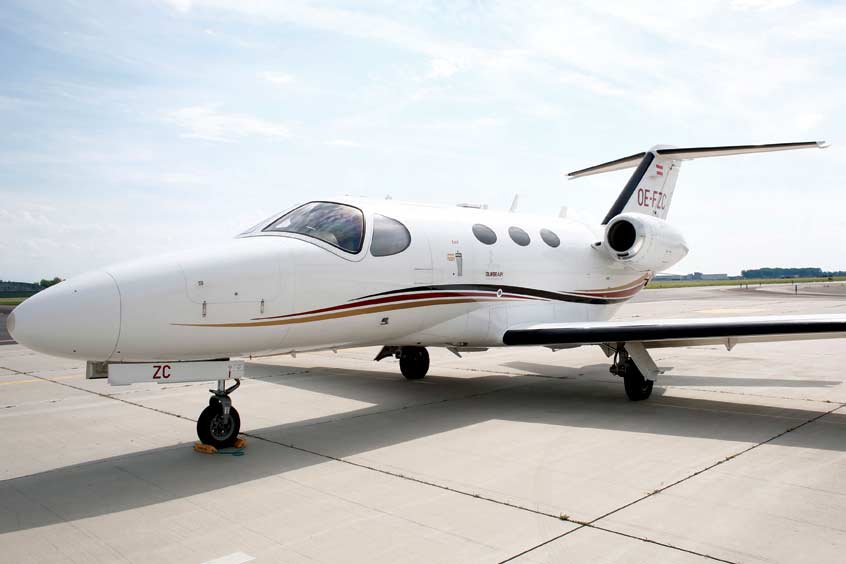Why visit ACE ’25?

Austrian Mustang fleet operator GlobeAir is predicting a year-on-year volume growth of 20 per cent for entry-level private jet charters in 2021. Since the pandemic's outbreak, European business aviation has shown resilience, growing stronger while commercial aviation sank. After acknowledging the growth of private jet demand starting from June 2020, GlobeAir is confident that entry-level jet charters will see an additional boost in the current year.
According to Eurocontrol and IATA, commercial airlines have lost 55 per cent of their flight volume to COVID-19. With airliners suddenly becoming unavailable and less reliable, coupled with high biosecurity concerns, more and more affluent flyers have started to charter private jets for essential travel.
“2020 saw GlobeAir's new accounts base grow 89 per cent more than in 2019 and double-digit enquiries growth in December 2020 (+24 per cent) and January 2021 (+17 per cent). This trend may be due to the growth of converters and downgraders, the first being frequent flyers who have switched to private jet services (converters) and the latter being private jet travellers who now prefer entry-level jet services (downgraders),” says VP of marketing and sales Jonathan Berdoz.
Biosecurity is a determining factor, the company says. When flying on a commercial airline, individuals may risk exposure to an average of 700 touchpoints compared to only 20 touchpoints on a private jet journey.
Current travel trends indicate that the industry will still face disruptions during 2021. There will always be a strong focus on safety, flexibility and accountability in an increasingly regulated air travel environment. Both commercial and private airlines will have to make those aspects central parts of their strategies to stay afloat. No matter if vaccination programmes have begun, those won't be enough to solve the biosecurity concern for yet another year. Today, for example, many European countries don't consider vaccines as a green card to travel freely without being tested multiple times. There will be more short-haul than long-haul flights, and passengers will demand the highest flexibility in rebookings and rescheduling.
“The industry is on the front foot in 2021,” states WingX MD Richard Koe. “Business aviation has increased its competitive advantages over the airlines by providing a controlled travel bubble, an on-demand schedule and seamless connectivity. There are strong economic headwinds and we would expect the utility-focused air taxi market to weather these conditions best. One obvious example is GlobeAir, Europe's leading entry-level jet operator; since the pandemic, GlobeAir has managed to stay within one per cent of its 2019 run-rate, operating almost 9,000 sectors across over 300 airports during 2020.”
Experienced by the lessons learned after the 2008 crisis, GlobeAir expects a high volume of requests to come in during Easter. Today, sales experts at GlobeAir predict that Sardinia, Corsica, the Balearic Islands and Côte d'Azur will be next summer's top destinations. The operator is tightening its relationships with key partners to provide tailored all-in-one experiences, including travel and accommodation solutions, to accommodate new-normalised travel needs. The company has announced it will expand its fleet to be ready for the summer to accomplish these plans. It has also reaffirmed the importance of focusing on customer support excellence and 24/7 availability to react fast to last-minute enquiries.
CEO Bernhard Fragner states: “After the challenging events of the previous year, we are starting 2021 with renewed optimism. It is both a challenging and exciting time for business aviation, with space for innovation and new concepts no matter the crisis.”